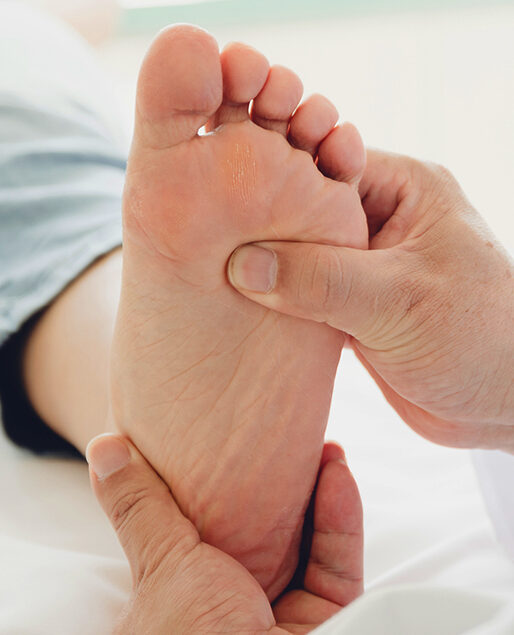Frequently Asked Questions
At your first podiatry appointment, we will: Take a detailed history of your problem. Take your medical history. Ask you about your lifestyle/ personal circumstances. Examine your feet and legs to diagnose your problem. Examine your shoe style and fit. Discuss a treatment plan with you and this could include ongoing general foot care, a referral to your GP or education and advice
Women have about 4 times as many foot ailments than men and this is mainly caused by wearing high heels. You can help your feet by limiting the time you wear shoes with heels over 5cm and alternate these shoes with good quality trainers.
Orthotics are custom-made shoe inserts that are designed to prevent abnormal foot motion. They help your foot muscles and tendons to perform more efficiently and can be used to treat flat feet, high arches, heel pain and bunions. They can also stop callus from forming.
Your feet mirror your general health. Conditions such as arthritis, diabetes, nerve and circulatory disorders can show initial symptoms in the feet. In this way, foot problems can be your first sign of more serious health problems.
There are 52 bones in your feet, making up around a quarter of the bones in your body. Your feet contain 66 joints, 214 ligaments and 38 muscles.
Studies show that 75% of the population will suffer from foot problems at some point in their lives.
It’s thought that only a small percentage of foot problems are genetic. Foot problems mainly develop through neglect and a poor understanding of foot care. Badly fitting shoes and constantly wearing high heels are two of the most common causes.
Toenails should be trimmed straight across. They should be just slightly longer than the tips of your toes. Cutting nails at the corners or edges can cause ingrown toenails.

Podiatry Services
Biomechanical Assessments
A biomechanical assessment involves your Podiatrist examining the structure, function and alignment of the bones and muscles in the lower limbs and feet.
Nail
Surgery
A specialist service dedicated to the treatment of painful in-growing toenails. In-growing nails are a painful and cause infection of soft tissue and severe pain.
Orthotic
Insoles
Orthotic insoles are prescribed to help reposition your feet in your shoes and to stop the pain that can be caused by misalignment in the skeleton
Accreditations
We Are Fully Accredited



